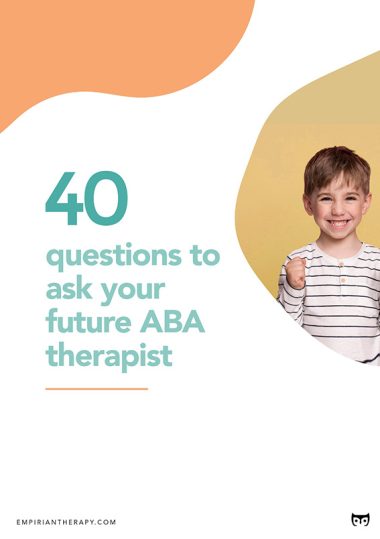Speech is a fundamental skill for human beings of any age. Whether it’s the ability to relay immediate needs or to express deeper feelings, basic communication is essential to one’s healthy development and well-being. But every child learns language and speech in his or her own way. There is no one-size-fits-all experience when it comes to developing this part of our minds.
It is perfectly common and normal for young children to struggle with various aspects of learning to communicate, and there are many safe and healthy ways that parents can help. Below are some of the resources our experts advise taking a look at if you’d like to learn more about this topic.
Articles, Research & Blogs
Government-approved information: The Center for Disease Control and Prevention (CDC) provides useful information about many different health-related subjects on its official website, including a full page about language and speech disorders in children within its Child Development section. The page includes a useful, bullet-point overview of the topic—including teaching methods for parents and caregivers to try, warning signs of potential learning problems and links to further information on treatment options.
Everything you need to consider in one place: The American Speech-Language-Hearing Association (ASHA) provides an extensive and clickable breakdown of topics you should know about as a parent. From here, you can read more about specific types of speech and language disorders and other related conditions. Being able to identify various challenges and distinguish between them can help guide you in the right direction when determining what your child is dealing with.
A personal touch: resource on speech and language impairments from the Center for Parent Information & Resources features relatable stories about the experiences of real people, and also defines some key terms you’ll likely encounter when reading about this subject. Further down, it contains some very detailed background information, useful tips for parents and teachers and suggested further reading for those interested in delving deeper.
Breaking it down: This page from KidsHealth is a straightforward breakdown of the basics of delayed speech or language development. Some of the information provided here includes warning signs to watch for at specific times in your child’s development, clarifications about often misunderstood symptoms and their causes and some very brief bullet points on what parents might want to consider when their child needs help in these areas.
Books Worth Reading
For more thorough reading on communication struggles and related topics, here are several books we recommend checking out:
- Childhood Speech, Language & Listening Problems, 3rd Edition: What Every Parent Should Know Your Child Overcome Fear, Stress, and Anxiety
- My Toddler Talks: Strategies and Activities to Promote Your Child’s Language Development
- Talk to Me: Conversation Strategies for Parents of Children on the Autism Spectrum or with Speech Language Impairments
- It Takes Two to Talk: a Practical Guide for Parents of Children with Language Delays, 5th Edition
It is important to understand the nature of your child’s communication struggles in order to ensure a proper approach for helping to develop and improve this crucial life skill.
For further help with your child’s language and speech challenges, please reach out to the Empirian Therapy team. Our experts are here to help you and your child.


